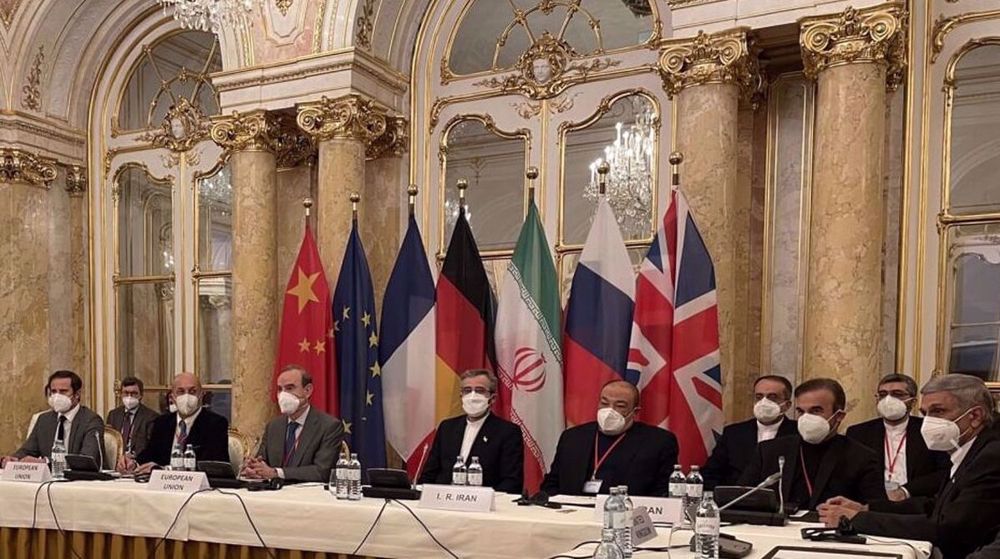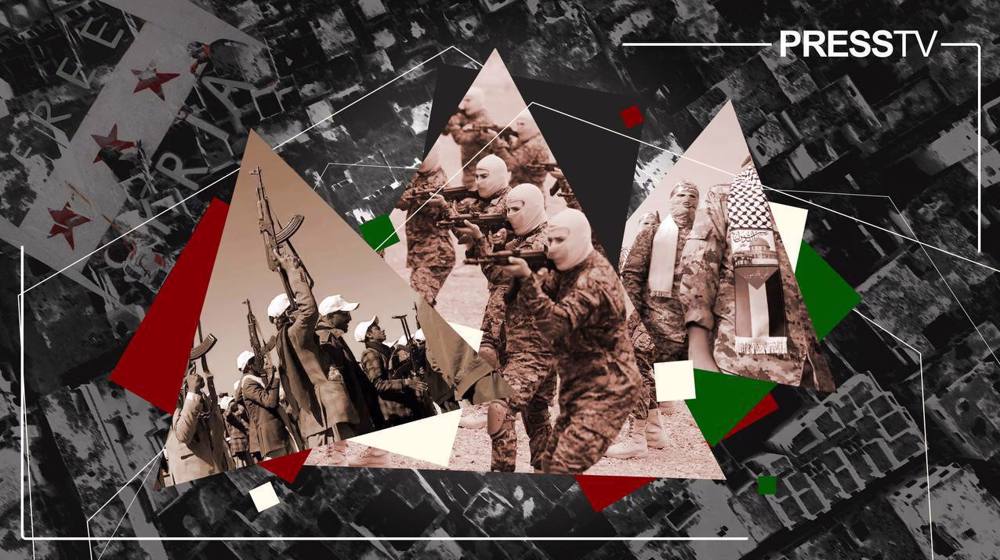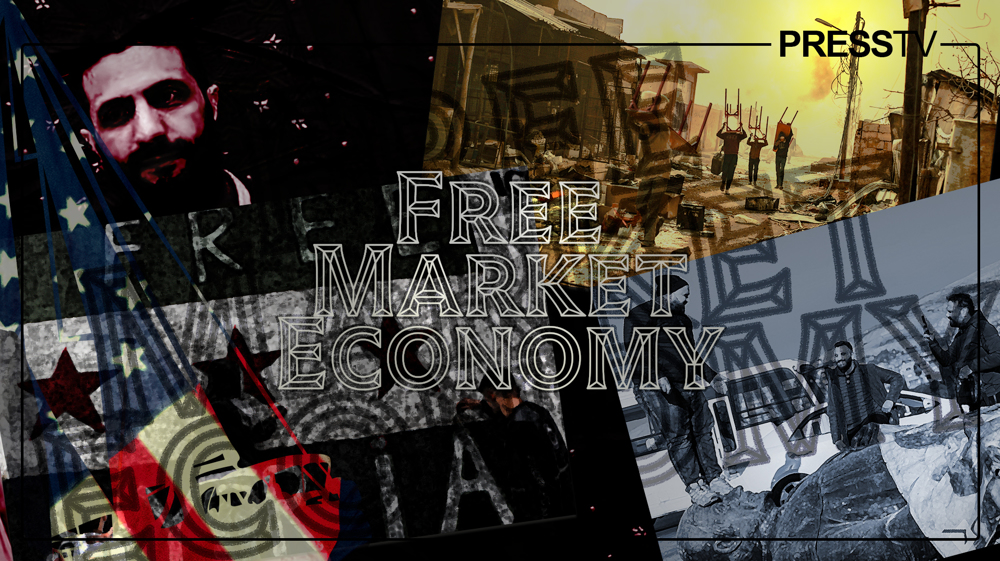Why doesn’t Iran negotiate with the US?
The United States’ departure from the 2015 deal has taken away the only reason that used to justify Iran’s negotiation with Washington.
Amid the eighth round of talks between Iran and the P4+1 group of countries, massive psychological operation against the Iranian negotiators is still underway.
One of these cases has seen Western media outlets as well as some media activists inside Iran itself propagate such a lie that the Russian representative in Vienna is negotiating with the US instead of the Islamic Republic.
This propaganda, which relies on misinterpretation of two-way or multilateral meetings between the members of the P4+1 and the American representative, pursues two objectives—an apparent one and a clandestine one—towards reinforcement of the United States’ position in the negotiations.
The apparent objective here is creation of the unrealistic proposition that Russia has assumed representing Iran in the Vienna negotiations and thus navigates the Iranian negotiating team.
Furthermore, such propagandist efforts seek to pressurize the Islamic Republic to enter direct talks with the US—a goal that has invariably been pursued by the American side.
Such activities seek, on the one hand, to cause a division between Iran and “Russia and China,” the three countries, whose positions are relatively concurrent with one another, as well as to weaken the Western side of the talks, and, on the other, amount to a purposeful bid to deceive the public opinion by creating the impression that Iran is powerless in the face of Moscow and Beijing.
What lays bare the purposefully designed nature of this ongoing media campaign is its failure to mention the European troika and the European representative’s meetings with the American representative, Robert Malley, as well as overstatement of the Russian representative, Mikhail Ulyanov’s meetings with the American official and misrepresentation of the latter meetings as the Iranian side’s efforts to interact with the American official through Ulyanov.
It should be pointed our here that during the talks that began in 2014 and led to the conclusion of the 2015 deal, Iran would negotiate with the P5+1 group of countries, of which the US was a member. Afterwards too, when the deal’s Joint Commission began meeting periodically, the US would take part as [only] a member of the deal and whatever available subject that would be discussed would be discussed in the presence of all the member states.
On May 8, 2018, however, the US officially left the deal, returning not only the sanctions that had been suspended via the agreement, but also initiating new sanctions against the Iranian nation.
The Joint Commission’s meetings, therefore, used to serve as the only platform, under which some meetings would be held with Iran and the US in attendance, through which negotiations would take place to address various sides’ implementation of their commitments. With Washington’s withdrawal from the deal, however, there basically remains no reason for the two sides’ negotiation with each other.
After Biden assumed the US’s presidency and alleged an intention to return the US to the deal, Iran officially stated that Washington’s mere participation in the deal or lack thereof is devoid of all value. Rather, Iran held, the US had to first act on its commitments under the deal by removing the sanctions and then its potential return to the deal could be decided on.
From the perspective of protection of the other members of the deal’s rights and dignity, the US’s illegal and insulting departure from the deal should not go unanswered. Therefore, the US’s resumption of its contractual duties is the smallest action that Washington could take to indicate that it regrets its previous measures concerning the deal.
The Islamic Republic has invariably declared that it stays true to its commitments under the deal and has not taken any measure in contravention of the agreement’s frameworks.
Iran has, since entering the new round of the talks in Vienna, announced that what it pursues in the negotiations is the removal of the sanctions, but, like in the past and in the event of the US’s honoring of the binding conditions that exist there for Washington’s return to the deal, talks could continue under the format of negotiations among the members of the deal’s Joint Commission.
This article was originally published in Farsi by Nour News website, which is affiliated with Iran’s Supreme National Security Council (SNSC).
D-8’s role in Iran’s economy after Cairo summit
China slams US as ‘war-addicted’ threat to global security
China ‘firmly opposes’ US military aid to Taiwan
VIDEO | Press TV's News Headlines
President Yoon Suk Yeol to be removed from office
At least 19 Gazans killed by Israeli airstrikes since dawn: Medics
Leader: Iran neither has nor needs proxy forces
US fighter aircraft shot down ‘in friendly fire’ amid aggression on Yemen










 This makes it easy to access the Press TV website
This makes it easy to access the Press TV website